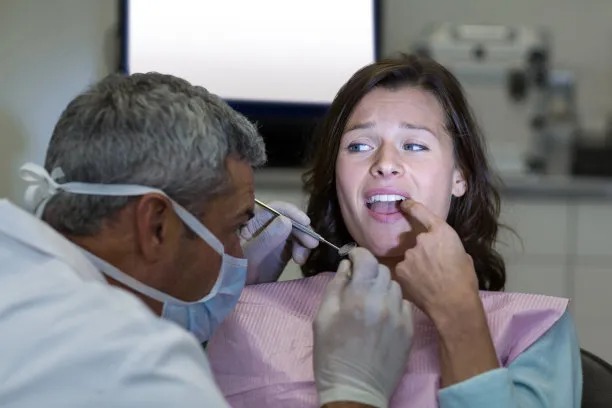Summary: Extracting a tooth is a significant dental procedure that plays a crucial role in maintaining optimal oral health. This article explores the process of tooth extraction, its importance, indications for extraction, and post-operative care. Understanding these aspects is essential for both patients and dental professionals, as it facilitates informed decision-making regarding oral health management. Effective management of dental extractions not only alleviates pain and discomfort but also ensures the long-term health of surrounding teeth and gums. By delving into each of these areas, this article aims to provide a comprehensive overview of tooth extraction and its integral role in dental care.
1. The Tooth Extraction Process Explained

The process of extracting a tooth begins with a thorough examination by a dentist, who evaluates the tooths condition and the surrounding oral structures. Diagnostic imaging, such as X-rays, may be required to ascertain the extent of any underlying issues. This step is critical as it helps identify the precise location of the tooth and any adjacent teeth or bones that may be affected.
Once the evaluation is complete, the dentist discusses the procedure with the patient, outlining potential risks and explaining anesthesia options. Local anesthesia is typically administered to ensure the patient remains comfortable and pain-free during the extraction. In some cases, sedation may be used to help alleviate anxiety, making the process more manageable for nervous patients.
After anesthesia takes effect, the dentist carefully removes the tooth using specialized instruments. For simple extractions, the tooth is loosened with forceps, while surgical extractions may be required for teeth that are broken or below the gum line. Following the extraction, the dentist takes measures to control bleeding and provide post-operative care instructions.
2. Importance of Tooth Extraction in Oral Health
Tooth extraction is essential for maintaining overall oral health, particularly when a tooth is significantly decayed or infected. Retaining a compromised tooth can lead to further complications such as abscesses and severe pain. Extraction eliminates these issues, allowing for better oral hygiene and preventing the spread of infection to adjacent teeth and gums.
Additionally, tooth extraction plays a role in orthodontic treatment. In some cases, creating extra space in the mouth may be necessary to allow for proper alignment of remaining teeth. This proactive approach not only enhances the overall aesthetics of a patient’s smile but also contributes to better functional occlusion.
Furthermore, extracting problematic wisdom teeth is vital for many individuals. These teeth often become impacted, leading to pain, swelling, and potential damage to nearby teeth. By addressing this issue through extraction, patients can avoid future oral health complications and maintain optimal dental function.
3. Indications for Tooth Extraction
There are several indications for tooth extraction, ranging from severe decay to trauma. Dental professionals often recommend extraction when a tooth is irreparably damaged due to decay or periodontal disease. In these cases, repair options may not be viable, making extraction the most appropriate solution.
Another common indication for extraction is overcrowding. When there is insufficient space in the mouth to accommodate all teeth, extraction can facilitate successful orthodontic treatment. This promotes not only functionality but also the aesthetic alignment of the patient’s dentition.
Traumatic injuries to the mouth can also necessitate tooth extraction, particularly when a tooth is fractured or dislocated. In these instances, immediate intervention is crucial to prevent further complications and to safeguard the integrity of surrounding teeth and oral structures.
4. Post-Operative Care and Recovery
Post-operative care following tooth extraction is vital for a speedy recovery and to minimize complications. Patients are advised to follow specific instructions, such as avoiding vigorous rinsing or sucking on straws, as these actions can dislodge the blood clot that forms in the extraction site.
It is also important to manage any discomfort with prescribed medication or over-the-counter pain relievers. Keeping the head elevated and applying cold compresses can help reduce swelling and promote healing. Patients should also be cautious about their diet, starting with soft foods and gradually reintroducing regular foods as healing progresses.
Finally, follow-up appointments are essential for monitoring the healing process and addressing any concerns that may arise. Regular dental check-ups ensure that the extraction site heals properly and that surrounding teeth and gums remain healthy.
Summary:
In summary, understanding the process and importance of tooth extraction is integral to optimal oral health management. With insights into the extraction process, its significance in oral health, clear indications for when it is necessary, and guidelines for post-operative care, patients can make informed decisions regarding their dental care.
This comprehensive approach highlights the role of tooth extraction in preventing complications and maintaining overall dental health. Proper management of extractions ultimately serves to enhance the patient experience and promote long-term oral well-being.
This article is compiled by Vickong Dental and the content is for reference only.
Vickong Dental
Vickong Dental is a large medical group established in Hong Kong in 2008 by professors from well-known medical universities in Guangdong and Hong Kong, as well as medical doctors from key national '985' universities (including Master's supervisors and senior professors). The chain of branches brings together expert dentists with PhDs and Master's degrees from Hong Kong and Mainland China, committed to providing high-quality dental treatment.
"Vickong Dental Practices the University Motto of 'Healing and Serving Society,' with a Stable Operation for Sixteen Years. It Has Been honored with Hong Kong Enterprise Leaders's Choice,' and is a Global Trusted Implant Center for the Nobel Implant System. Recommended by Hong Kong Metro Broadcast and Guangdong Television, it Serves Customers from Over Thirty Countries and Regions, Gaining the Trust and Favor of Citizens from the Guangdong-Hong Kong-Macau Greater Bay Area and Surrounding Cities.

Thousands of customers' unanimous praise
The most recognized and highly recommended dental service by customers in the Guangdong-Hong Kong-Macau Greater Bay Area
We Ensure You Receive Detailed Care and Attention Here
Hong Kong standards, Shenzhen prices, Your Trusted English-speaking dentists

Vickong Dental Medical-Grade Instrument Disinfection Process
Vickong Dental Medical-Grade Instrument Disinfection Process

Vickong Dental Chain: A Warm and Comfortable Environment for Treatment






Appointment Hours

Q&A
Why choose Vickong Dental?
Vickong Dental practices the university motto 「Medicine to Benefit Society」, with each branch bringing together highly qualified dentists with doctoral and master’s degrees from Hong Kong and the Mainland, and has maintained seventeen years of steady operation。Recipient of 「2024 Hong Kong Enterprise Leaders Brand」, 「2025 Hong Kong Enterprise Leaders Brand」, a Nobel Biocare Global Trusted Implant Center, and a brand recommended by Metro Radio Hong Kong and Guangdong TV。
To date, we have served customers from more than thirty countries and regions,earning exceptionally high word-of-mouth recognition and trusted recommendations from residents across the Guangdong-Hong Kong-Macao Greater Bay Area and surrounding cities
We have eight major branches in Zhuhai、Shenzhen,and a consultation and service assurance center in Hong Kong,so you can book a free consultation at any time for any questions,which is very reassuring.
If I do not accept the quotation after the CT scan, will I be charged??
No! As long as the actual treatment has not started, you will not be charged any fees.
Will there be any additional charges during the treatment process?
No, there won’t be any additional charges. Before treatment begins, we will clearly explain the treatment plan and its corresponding fees. Only after the patient agrees and signs the consent form will we proceed with the dental service.
Can I pay in Hong Kong dollars?
Yes. Vickong Dental accepts payment in Hong Kong dollars. The amount will be converted based on the exchange rate of the day, and the applicable rate will be clearly communicated to you in advance.
Can I reschedule my appointment at any time?
Yes. Please contact us via **WeChat** or **WhatsApp** as early as possible, providing your original appointment time and details, along with your preferred new date and time slot for rescheduling.













